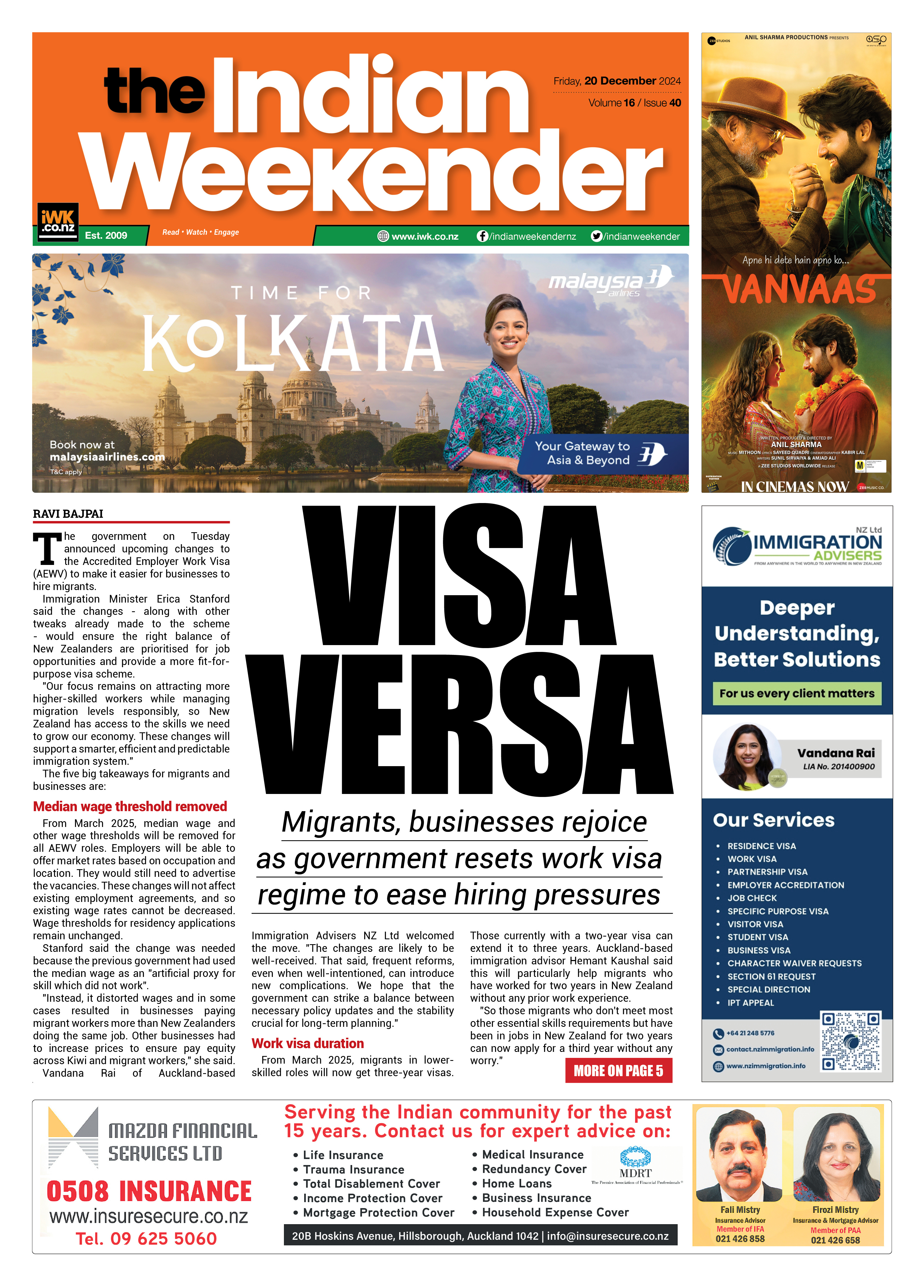Are you a Patel? You must be rich

Is your surname Patel? Congratulations - you are officially more likely to be a multi-millionaire than anyone else in Britain. And if you aren't yet wealthy, you're likely to become so. So what is it about this lot that makes them so much more successful than the rest of us?
For many, the name Patel is synonymous with the corner shop, that emergency port of call that has saved many a person's bacon when the supermarket is shut. But forget Patel the shopkeeper, and step forward Patel the self-made millionaire. For if your surname is Patel, you are seven times more likely to be a multi-millionaire than if your name is Smith.
For many, the name Patel is synonymous with the corner shop, that emergency port of call that has saved many a person's bacon when the supermarket is shut. But forget Patel the shopkeeper, and step forward Patel the self-made millionaire. For if your surname is Patel, you are seven times more likely to be a multi-millionaire than if your name is Smith.
Dr Philip Beresford, who compiles the annual Rich List, has 37 Patels and 50 Smiths on his database of millionaires worth over £5m. However, there are only around 36,000 Patels compared to 360,000 Smiths on the electoral register.
As well as the 37 multi-millionaires, Dr Beresford says there are also around 500 Patel millionaires in Britain. Not that it came as any surprise to him. "In fact, I think there should be more. It's just my inability to find them and put a value on them," he says.
What does he put their success down to? "Hard work, strong family solidarity, extraordinary determination, ambition to do well that goes from one generation to the other, and belief in education."
Another crucial factor in the Patels' apparent ability to amass a fortune is their reluctance to be flash with their cash. "They hate spending money, and love saving or investing it," says Dr Beresford. "All of those combinations are millionaire-making qualities. There are very few millionaire families in the wider community who last more than a couple of generations without somebody saying, 'I want to take it easy and spend the money', rather than keep accumulating more investments. That's their main difference - the solidarity of the family and the single-minded pursuit of wealth-creation, rather than wealth-spending, which carries on generation after generation."
According to CB Patel, editor and publisher of the weekly newspaper the Gujarat Samachar/Asian Voice, there are, in fact, around 207,000 Patels in Britain. Their original homeland is the north-west Indian state of Gujarat, where they settled after migrating from Punjab in 1139AD. Towards the end of the 17th century they acquired land rights and were given the title Patel (meaning landowner). By the mid-19th century further migration had taken them to other parts of India, Fiji, South Africa, the Caribbean, Britain and several of its colonies. Thousands more Patels arrived in Britain in the Seventies from Uganda when Idi Amin ejected all Asians.
The name Patel is now the 24th most common in Britain. The community even produces its own telephone directory. "It is said there are hardly any towns in England where there are no Patels," says CB Patel, who is not convinced that his namesakes are more successful that anyone else. "Jewish people are more rich but they don't talk about it. Only we Patels are so foolish we talk about our wealth. It creates envy and jealously in some people who are intolerant. There are many other Asian communities that are more successful."
The richest Patels in Britain are the brothers Vijay and Bikhu, chief executive and managing director of Waymade Healthcare Plc, which supplies prescription medicine to pharmacies and hospitals all over Britain. Last year the company, based in Basildon, Essex, made an £11.8m pre-tax profit. Since 1989, it has had an average year-on-year growth in profits of 33 per cent. The brothers are believed to be sitting on a £203m fortune.
Vijay, 50, came to Britain from Kenya in 1968 at the age of 16. When his father, a timber merchant, died when he was six, his mother, who was penniless, set up a nursery to support her three children. "We were very poor. We had barely enough. The four of us lived in a single room. I had two pairs of shorts, one in the wash and one on. You just managed to get meals," says Vijay, at ease today in his Canadian-maple panelled office. His childhood inspired enormous ambition and a desire for wealth. Encouraged by his mother to get a good education, he came to Britain and studied pharmacy in Leicester, rather than medicine, as it offered better business opportunities. Turning down an offer of a job at Boots, he started work at a small independent pharmacy believing he would learn much more.
Two years later, with the help of a loan guaranteed by his uncle, he opened his first pharmacy in Leigh-on-Sea, Southend, in 1975. After five years he had a chain of five. "I made a point of selling myself. I had nothing else going for me apart from wanting to succeed. And what do you do to succeed? You impress your customer that you are there at their disposal at any time. Whoever walked in I made sure I knew their name, their children's name and their ailment. I became 'Mr Patel, my friend'."
As his chain increased, he started negotiating better prices for bulk orders of supplies, selling some of them on to other independent pharmacies at a profit. His efforts eventually resulted in Waymade, which Bikhu, 52, joined in 1982.
Vijay, who still works the odd Saturday in his first pharmacy, puts his success down to sheer determination and ambition. "A successful entrepreneur is someone who recognises an opportunity, grabs it and brings it home to roost." Does he believe his success has anything to do with being a Patel? "I think Patel families instil education first and foremost in their children to a greater extent. Ask any Patel who is working in a newsagent, and they will say their son will go to university. They recognise that that is the path to success. A lot of them won't do arty-farty stuff, they want something solid as a profession - engineering, medicine, pharmacy, dentistry," says Vijay, who lives in an eight-bedroom house in Benfleet, Essex, and drives an Aston Martin and a Mercedes. His personalised number plate bears his first name. "I wouldn't want Patel on it somehow," he says.
How does he feel about being the richest Patel in Britain? "I don't feel that that is an incredible achievement. I feel no different from when I was 36,000th, or whatever. I'm no different from 30 to 40 years ago. I've got a long way to go. My friends talk of retirement, I haven't even started. It isn't about making more wealth, it's about achieving the goals that I've set for myself. My ambition is to become a miniature Glaxo by the year 2010."
So what does Leicester's large Patel population - which included Vijay when he was a student - think of its chances of becoming a millionaire? Kritesh Patel, 23, who owns Printvision, a stationery and printing business in Melton Road, with his brother Ashish, 24, believes it is only a matter of time before they too join the names on Dr Beresford's database. "Being a millionaire takes hard work, knowledge and contacts," says Kritesh, who has 200-odd close relatives called Patel.
The pair were set up in business two-and-a-half years ago by their father, a retired grocer and confectioner, who came to the UK in the mid Seventies from Uganda with only £50. The young men's business made a profit within its first year.
"You become successful by sticking with your family," says Kritesh. "Patels who have become successful either live with more than one family or live with more than four or five working people in the household. One pays the mortgage, one puts the food on the table, and the money from the other three goes in the bank. Over 20 years how much money are you going to have? A lot. It's easy.
"Patels wouldn't cut someone's throat to make money, but they wouldn't look at a competitor as a friend," he adds.
While being a Patel might increase your chances of striking it rich, there is one definite downside, according to CB Patel. "Patels are more bald than other Asians," he says. "It's all the hard work and worry."




